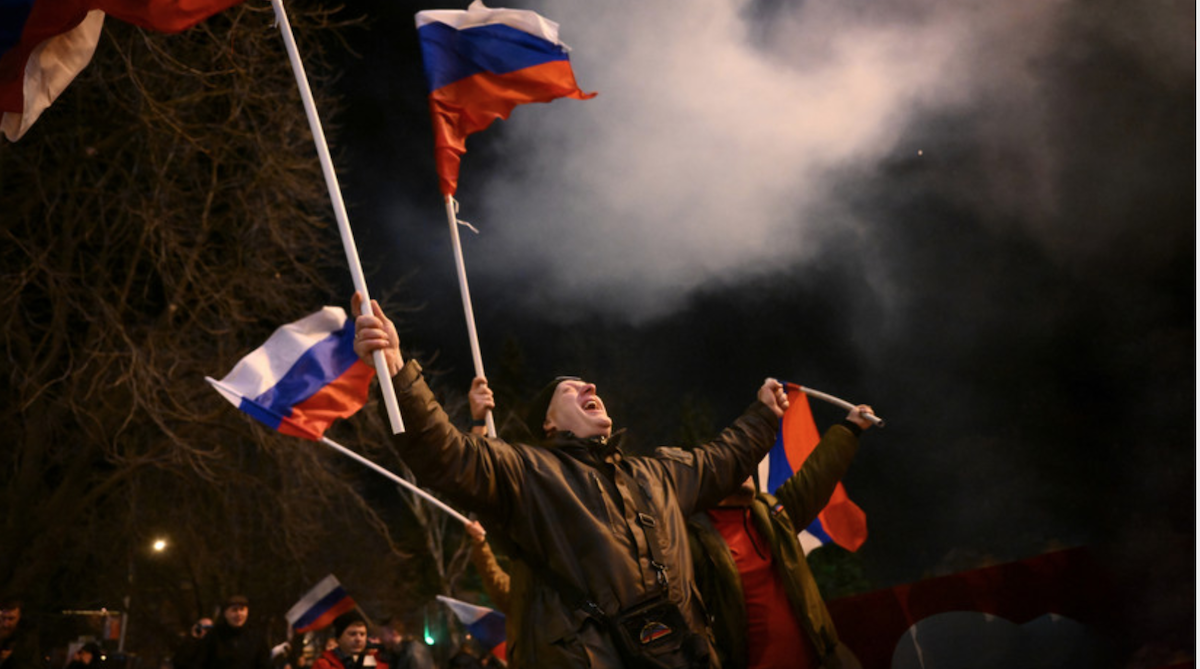Op-ed: elections in Abkhazia and anticipation of crisis
Parliamentary elections in Abkhazia
Parliamentary elections will take place on Saturday, March 12, in Abkhazia. JAMnews Abkhazia editor Inal Hashig analyzes the pre-election environment in the republic and the challenges that are facing government and the opposition. Among them is the possible deterioration of the local economy amid the ongoing war in Ukraine.
The election campaign, which began with one agenda, which was based on the search for ways to bring the country out of chronic domestic political and socio-economic crises, was noticeably updated by external challenges towards its end.
Perhaps, these are the last parliamentary elections to be held in Abkhazia according to the majoritarian system. The local elite, long since split into two (periodically replacing each other) irreconcilable camps, by joint efforts came to the conclusion that it has outlived its usefulness and a transition to a mixed system is required.
But it was not possible to legislatively formalize the changes for the new elections. So the majoritarian parliament will have to respond to chronic internal and unexpected external challenges.
The military conflict between Russia and Ukraine and the ensuing tough confrontation between the Western world and Russia cannot but affect Abkhazia for obvious reasons.
For Abkhazia, Russia is not only an ally and guarantor of its security, but also its main economic partner.
The official currency of the republic is the Russian ruble. More than 80 percent of the trade turnover falls on Russia. Local banks carry out their international settlements on payments exclusively through correspondent accounts opened with Russian banks.
The basic segment of the Abkhaz economy – resorts and tourism – exists mainly at the expense of Russians who come to spend their vacation in Abkhazia. In addition, almost half of the revenue of the Abkhazian budget is made up of gratuitous subsidies from Moscow.
The unprecedented sanctions imposed on Russia will definitely affect Abkhazia.
Surely the flow of financial aid to the republic, to which official Sukhum is so accustomed, will noticeably decrease.
Now the Abkhazian authorities will have to almost independently solve infrastructure problems – the construction and repair of roads, water supply, sewerage, kindergartens, schools and hospitals.
For more than a decade, these projects, to which the local elite was very comfortable, were financed by the Russian budget. Now, due to the emerging new geopolitical reality, in Sukhum, if not clearly, then at least on an intuitive level, there is an understanding that it will definitely not be the same as it was before.
We need to rebuild and learn to rely on our own resources.
Naturally, such a drastic change in the situation in the world could not but affect the rhetoric of candidates for deputies. But there is a surprise effect. Other than supporting Russia’s actions, “the need to tighten our belts and be ready for anything”, no specific ideas are being articulated.
However, what can we say about the contenders for a deputy mandate, if the executive power itself remains silent, as if the global crisis will not affect Abkhazia in any way.
However, such a slow reaction may be fraught primarily for the president and the government. Because it is too early to make claims against the new composition of the parliament, which will start working only in April.
Moreover, if the executive power, against the background of changed circumstances, steers in the old way, it is the People’s Assembly that will become its main opponent.
Even if initially in the new composition of the parliament there will be a majority of those deputies who got there under the patronage of the executive branch, the reformatting of the main legislative body due to public sentiment is inevitable.
But if the government, on the contrary, changes the style and methods of management, adequately responding to challenges, then even the opposition parliament will become its first ally.
Terms, place names, opinions and ideas suggested by the author of the publication are her / his own and do not necessarily coincide with the opinions and ideas of JAMnews or its individual employees. JAMnews reserves the right to remove comments on posts that are deemed offensive, threatening, violent or otherwise ethically unacceptable.





















